Curated OER
Bryant Creek Watershed Project - Making a Karst Dictionary
Students explore the definitions relevant to Karst topography. They develop a Bryant Watershed Dictionary of the special words and terms that are used to talk about the topography and hydrology of the area they live in.
Curated OER
Making a Karst Dictionary
Students practice using the correct vocabulary in geology and hydrology. They use the Internet to research topics and practice their researching skills.
Curated OER
Destination Reading
Students practice reading skills and comprehension through the use of computers and the educational software "Destination Reading" provided by Riverdeep in this self-directed lesson.
ReadWriteThink
Read Write Think: Identify, Compare, Write Nonfiction
Lesson that introduces the concepts of nonfiction to elementary students. Through reading and interactive lessons, students engage the genre of nonfiction and begin to write their own examples.
ReadWriteThink
Read Write Think: Blending Fiction and Nonfiction
Contains plans for four class periods that ask students to blend narrative and expository writing after reading fiction and nonfiction selections. In addition to student objectives and standards, these instructional plans contains links...
British Library
British Library: 19th Century Non Fiction Texts: Work & Welfare
This thematic collection will allow students to read and understand 19th-century non-fiction texts, and support them in identifying key features for a range of genres, audiences, and purposes. Each source is accompanied by original...
British Library
British Library: 19th Century Non Fiction Texts: Gender, Behaviour & Etiquette
This thematic collection will allow young scholars to read and understand 19th-century non-fiction texts, and support them in identifying key features for a range of genres, audiences, and purposes. Each source is accompanied by original...
British Library
British Library: 19th Century Non Fiction Texts: Education
This thematic collection will allow students to read and understand 19th-century non-fiction texts, and support them in identifying key features for a range of genres, audiences, and purposes. Each source is accompanied by original...
British Library
British Library: 19th Century Non Fiction Texts: Crime & Punishment
This thematic collection will allow students to read and understand 19th-century non-fiction texts, and support them in identifying key features for a range of genres, audiences, and purposes. Each source is accompanied by original...
Other
Seeing the World in Print Through Nonfiction
Unit plan containing five lessons designed for tenth graders. They center around reading and writing nonfiction, and they teach skills such as identifying the features of nonfiction and writing expository texts. All are aligned to...
ReadWriteThink
Read Write Think: Using Thieves to Preview Nonfiction Texts
Contains plans for three lessons that introduce a nonfiction prereading strategy with the acronym THIEVES, which stands for Title, Headings, Introduction, Every first sentence, Visuals and vocabulary, End Questions, and Summary. In...
ReadWriteThink
Read Write Think: Reading/writing About Whales Using Fiction and Nonfiction Texts
Students will have a whale of a good time in this lesson in which they use fiction and nonfiction texts to write a letter to an online scientist.
ReadWriteThink
Read Write Think: Question and Answer Books From Genre Study to Report Writing
Contains plans for eight lessons that explore Question and Answer Books and ask students to do research in order to write their own. In addition to objectives and standards, these instructional plans contain links to sites used in the...
Writing Fix
Writing Fix: Question and Answer Books
Beginning writers work through a Writing Workshop format to create Question and Answer books. A series of mini-lessons, graphic organizers, possible texts, and samples of student work are all provided.
ReadWriteThink
Read Write Think: Animal Study From Fiction to Facts
Contains plans for five 50-minute lessons that ask students to compare and research information about animals from fiction and nonfiction texts. In addition to student objectives and standards, these instructional plans contains links to...
ReadWriteThink
Read Write Think: Comprehending Nonfiction Text on the Web
Contains plans for three lessons designed to improve comprehension of nonfiction, especially nonfiction texts on the web. It focuses on identifying text features, locating specific information, and generalizing that information. In...
TES Global
Tes: Non Fiction Unit 4 Formal/impersonal Writing: Tourists
[Free Registration/Login Required] Young scholars will analyze tourism brochures to determine features related to nonfiction writing in this unit. Tourism websites may be used in lieu of the brochures. Cotswold and the North Leigh Roman...
ReadWriteThink
Read Write Think: Using Nonfiction for Inquiry Based Research
Contains plans for lessons that help students explore the nonfiction genre by doing inquiry-based research on animals. In addition to objectives and standards, this instructional plan contains links to sites used in the lessons as well...
Writing Fix
Writing Fix: All About Posters
As young writers become more skilled through the Writers Workshop lessons, they can begin working to become more skilled with non-fiction writing. A series of mini-lessons, graphic organizers, and samples of student work are all provided.
Utah Education Network
Uen: Pets: Stuffed Animal Day
This instructional activity requires students to bring a stuffed animal to school. During the instructional activity, students will create a class graph and individually author their own nonfiction pet books after conducting research.
ReadWriteThink
Read Write Think: Predicting and Gathering Information With Nonfiction Texts
Contains plans for eight short lessons that introduce nonfiction texts to second grade young scholars. In addition to objectives and standards, this instructional plan contains links to sites used in the lessons as well as assessment and...
ReadWriteThink
Read Write Think: Using Science Texts to Teach the Organization of Nonfiction
Contains plans for three lessons that use science textbooks to teach about the organizational features of nonfiction such as labels, captions, headings, and fonts. In addition to objectives and standards, this instructional plan contains...
ReadWriteThink
Read Write Think: Motivating Students to Read Nonfiction
This lesson plan deals with timelines in connection to nonfiction reading. Included in the lesson plan is an overview, practice, objectives, resources, preparation, and more.
Florida Center for Reading Research
Florida Center for Reading Research: Fiction and Nonfiction Sort [Pdf]
A lesson plan in which learners look at different books, write their titles, and sort them according to whether they are fiction or nonfiction. Materials are included.
Other popular searches
- Nonfiction Writing
- Nonfiction Writing Technique
- Nonfiction Summary Writing
- Nonfiction Writing Rubrics
- Narrative Nonfiction Writing
- Leads in Nonfiction Writing
- Creative Nonfiction Writing
- Editing Nonfiction Writing
- Nonfiction Writing Lessons
- Types on Nonfiction Writing
- Nonfiction Research Writing
- Writing a Nonfiction Summary






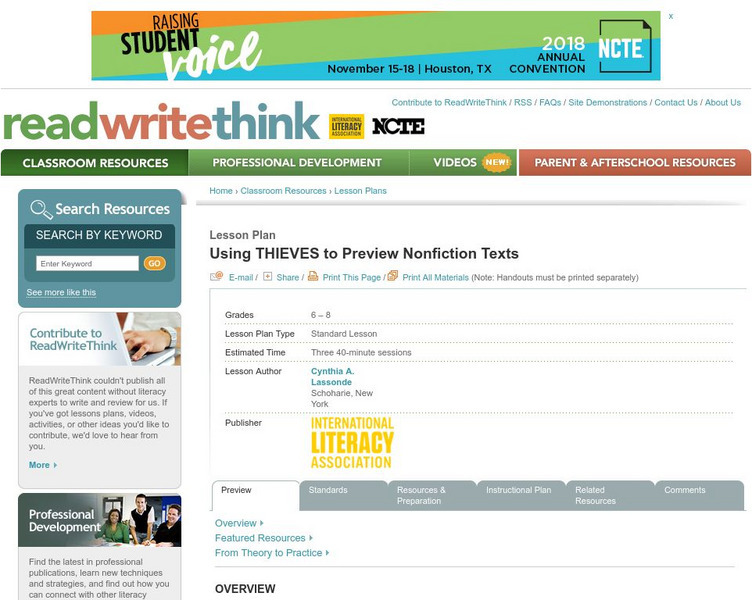


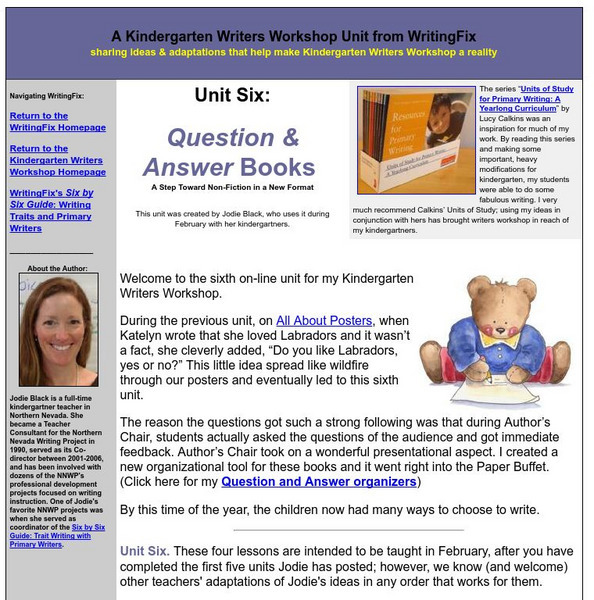



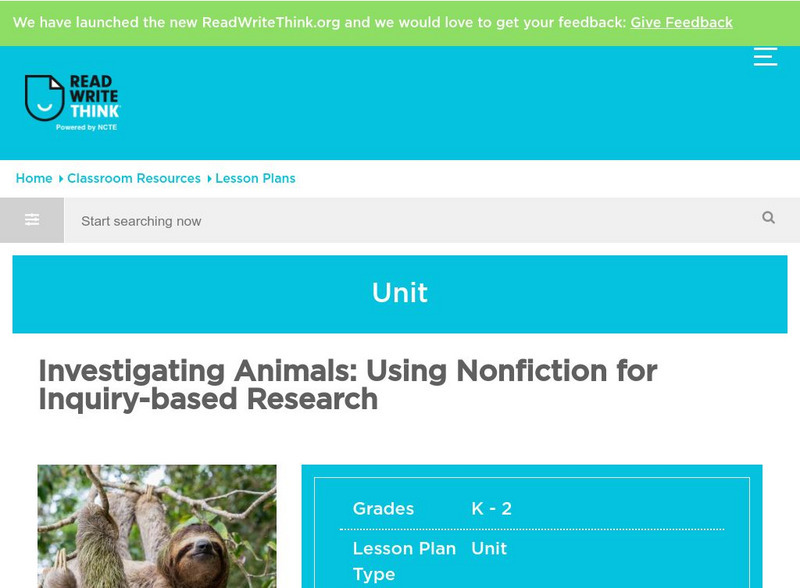
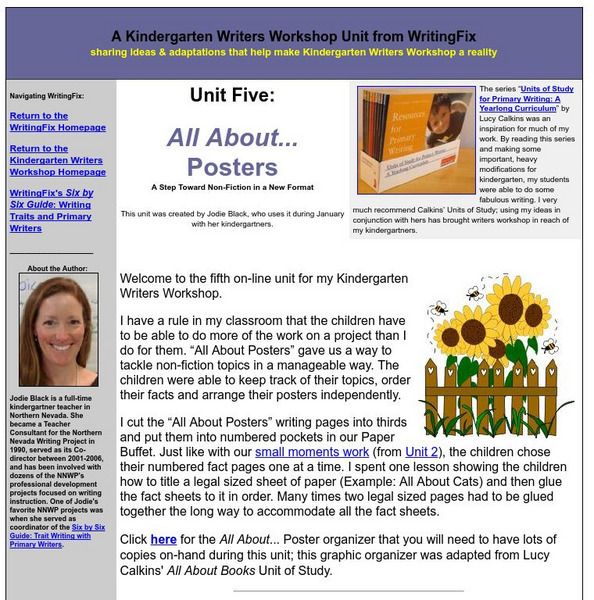
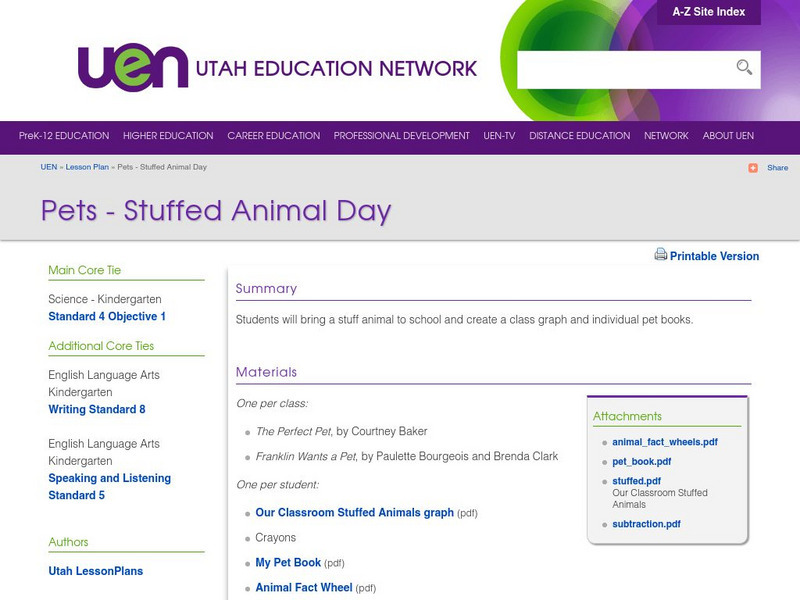
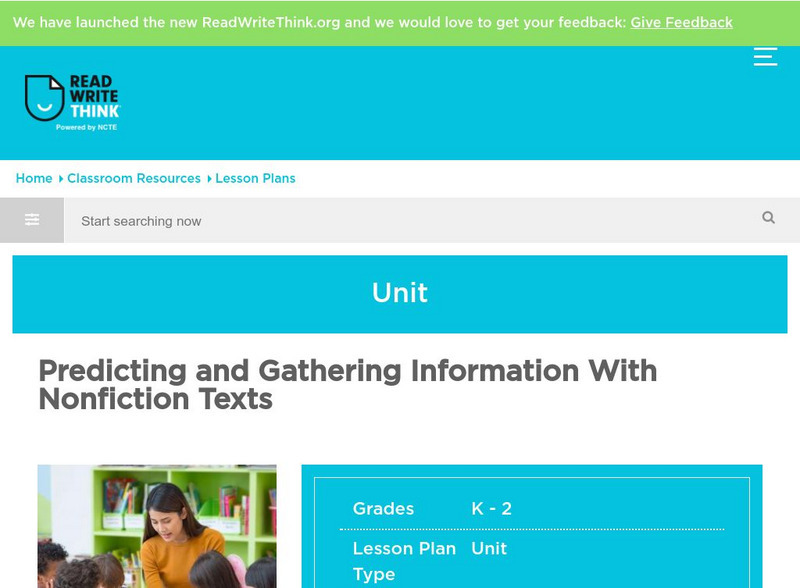


![Florida Center for Reading Research: Fiction and Nonfiction Sort [Pdf] Lesson Plan Florida Center for Reading Research: Fiction and Nonfiction Sort [Pdf] Lesson Plan](https://content.lessonplanet.com/knovation/original/509105-4469283d2301f2d80ae09183a55b8e2c.jpg?1661786967)